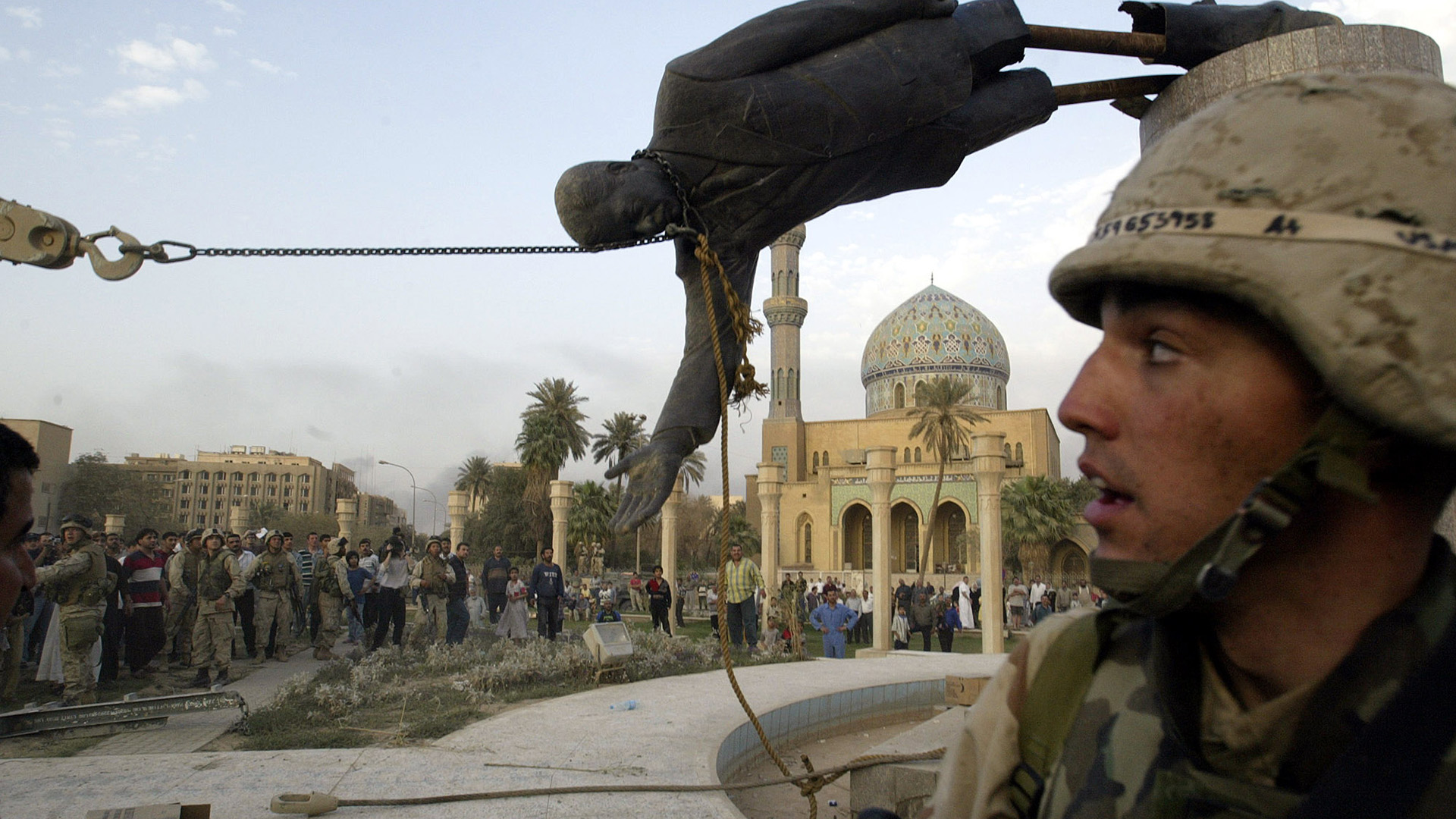

Two decades after a U.S.-led military coalition ousted Iraqi dictator Saddam Hussein, the Senate has repealed the authorization from Congress to launch the Iraq war and subsequent military actions.
In a 66-30 vote, senators rescinded the 2002 Authorization for Use of Military Force that gave then-President George W. Bush the power to “defend the national security of the United States against the continuing threat posed by Iraq.”
At the time, the Bush administration claimed that Saddam posed a dire threat to national security because U.S. government officials erroneously believed Iraq had large stockpiles of weapons of mass destruction.
Since then, nearly 4,500 U.S. troops have been killed in Iraq and roughly 32,000 service members have been wounded there. Although the country is much more peaceful today, about 2,500 U.S. troops remain in Iraq.
Subscribe to Task & Purpose Today. Get the latest military news, entertainment, and gear in your inbox daily.
Because the 2002 authorization for war did not specify what that threat posed by Iraq was, it has been used as the legal basis for later military actions that had nothing to do with Saddam’s former regime, including airstrikes against the Islamic State group and the 2020 assassination of Iranian Maj. Gen. Qasem Soleimani, head of Islamic Revolutionary Guard Corps-Quds Force.

The Senate also voted on Wednesday to repeal the 1991 authorization for the Gulf War. It is unclear what action the House of Representatives will take on the two authorizations for use of military force – if any.
House Speaker Kevin McCarthy (R-Calif.) has said he would support repealing the two authorizations if an earlier authorization for use of military force passed by Congress shortly after the Sept. 11, 2001 terrorist attacks remained in effect.
The 2001 authorization is worded to give the president wide-ranging powers to attack terrorist groups, including al Qaida. It has served as the legal basis for the war on terrorism for more than 20 years.
“The President is authorized to use all necessary and appropriate force against those nations, organizations, or persons he determines planned, authorized, committed, or aided the terrorist attacks that occurred on September 11, 2001, or harbored such organizations or persons, in order to prevent any future acts of international terrorism against the United States by such nations, organizations or persons,” the 2001 authorization for use of military force says.
Loosely translated: The president has the power to order military operations against any group with the slightest connection to al Qaida. That’s how President Barack Obama’s administration justified airstrikes against ISIS that began in 2014, arguing that the terrorist group was an iteration of al Qaida in Iraq. The Obama administration also used the 2001 authorization as the legal basis for airstrikes in Libya and counterterrorism operations in the Philippines.
The Senate voted earlier this month to keep the 2001 authorization in place.
White House officials have indicated that President Joe Biden would likely sign legislation repealing the 1991 and 2002 authorizations for use of military force, and they have noted that current U.S. military operations do not rely on those two authorizations as their legal basis, the Washington post reported.
The Biden administration has used other legal means to justify military operations. In 2021, Biden administration officials said that Article II of the Constitution, which names the president as the military’s commander in chief, gave Biden the authority to order airstrikes in Syria and Iraq.
The latest on Task & Purpose
- No, the VA isn’t going to reduce your disability payments if you make too much money
- Air Force 1-star general relieved for ‘shortfalls’ in personal conduct
- What are America’s goals in Ukraine? It’s not totally clear
- Russia is dusting off ancient tanks as losses mount in Ukraine
- How the Battle of Nasiriyah foreshadowed the long slog of the Iraq War